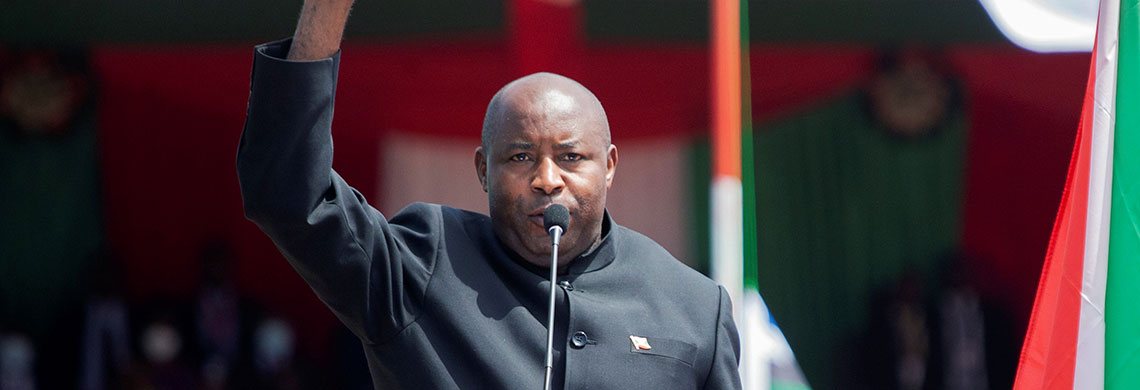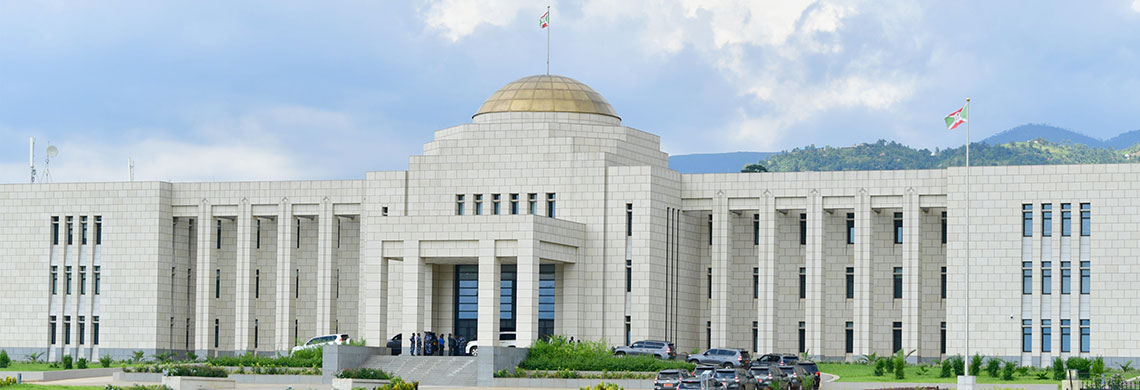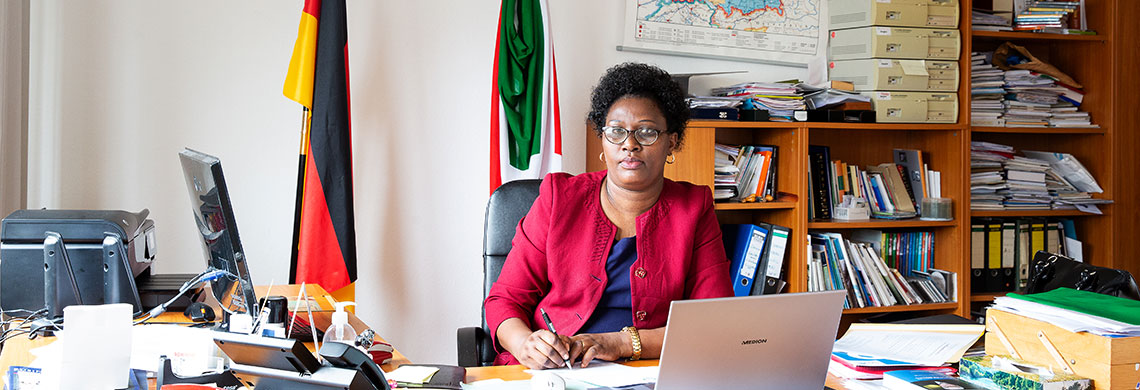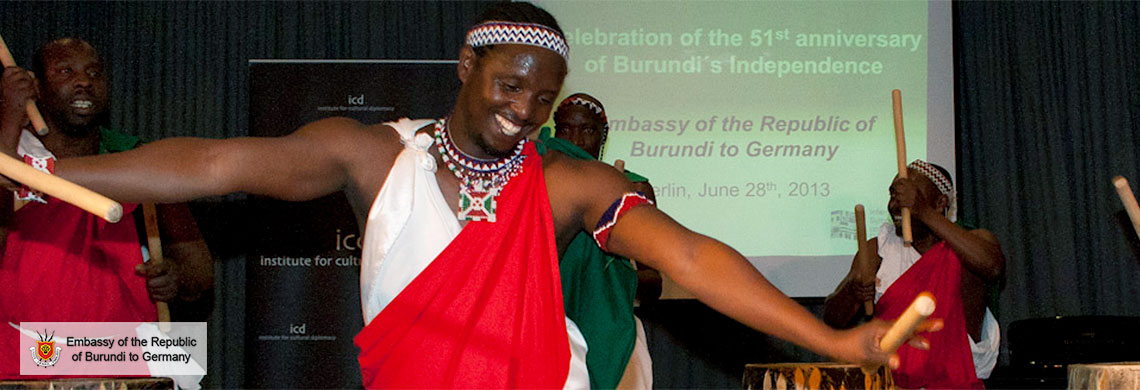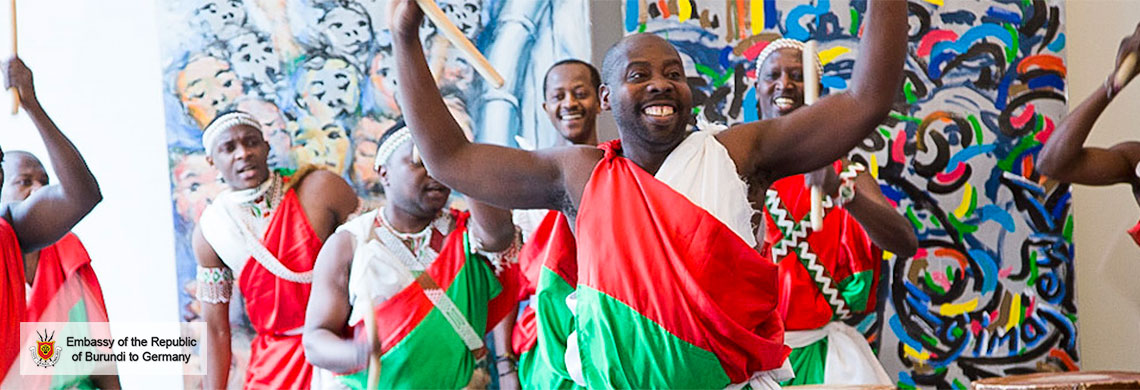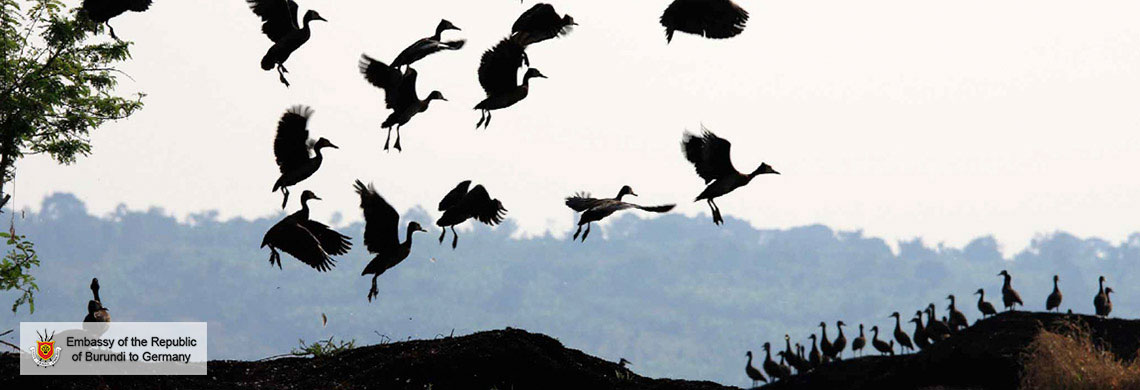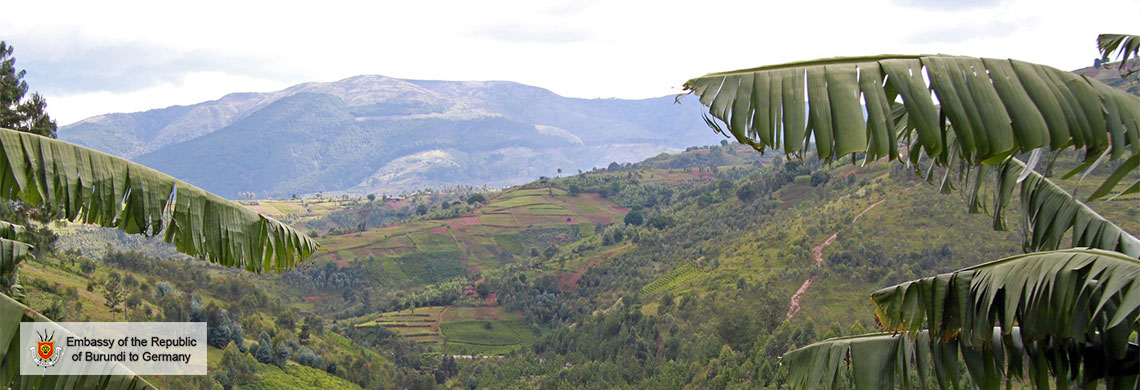German-Burundi Relations
 |
 |
Relations between Burundi and Germany are positive and friendly. The office in Berlin is an important representative of the Burundian government in Europe, as can be seen from the fact that the Embassy of Burundi in Berlin is responsible not only for Germany, but also deals with the Vatican, Denmark, the Czech Republic, Austria, Slovakia, Sweden, Norway, Turkey, Finland, Latvia, Lithuania and Estonia.
Diplomatic relations between the two countries date back to the German Reich’s colonial presence in Burundi between 1896-1916. Germany has a good reputation in Burundi due to the remarkable level of aid it offered after the Burundian declaration of independence in 1962. Political instability in Burundi has led to a slight cooling of relations in the last 10-15 years. The German Embassy in Bujumbura was closed for security reasons in December 1999, but reopened in 2006 after election security improved significantly the previous year.
Germany’s goal remains to support Burundi politically and economically, particularly with money for development. There is an increasing amount of financial funding, focusing on water issues, health policy (especially the fight with HIV/AIDS), refugees and public security. In 2011, Germany donated €27.5 million to Burundi in foreign aid. In return, Burundi gives Germany political support in multinational organizations such as the UN; for example, it recently campaigned for Germany to have a permanent seat on the UN Security Council.

